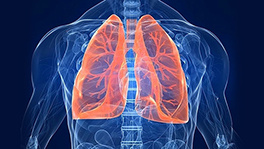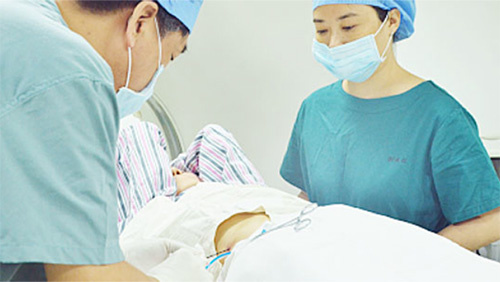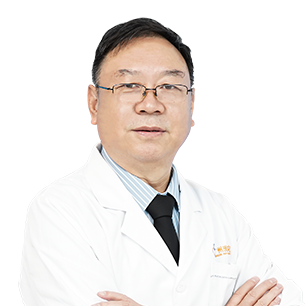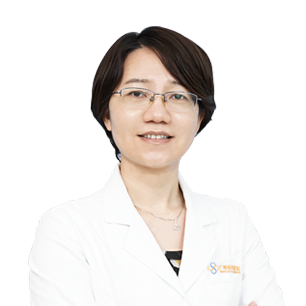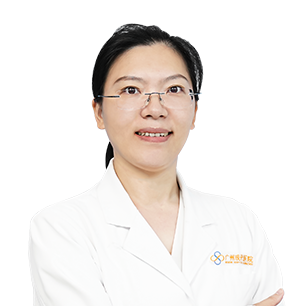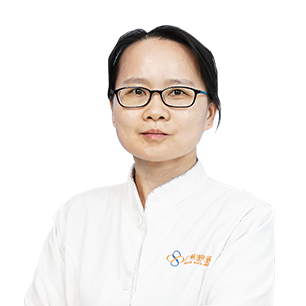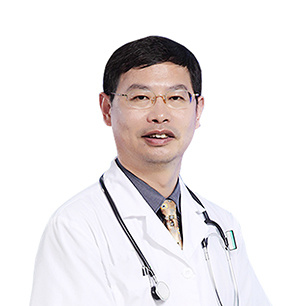 Views:59
Views:59 2025-04-01
2025-04-01 Share
Share
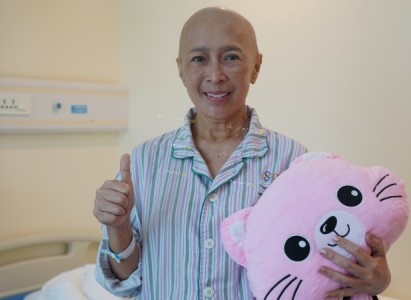
- Diana Kartika Arma Indonesia
- Diseases:Cervical cancer
- Treatment programs:interventional therapy
She chose minimally invasive treatment when she lives a regular life but suffers from cervical cancer
My patient, Diana, is a 57-year-old strong Muslim woman from Jakarta, Indonesia. Despite her excellent lifestyle habits, she was unfortunately diagnosed with cancer, which serves as a stark reminder that cancer can affect anyone and underscores the importance of paying close attention to changes in our bodies.
In November 2021, Diana, who was in menopause, developed abnormal vaginal bleeding and was diagnosed with cervical cancer after local examination. Local doctors gave chemotherapy advice, but because there were relatives at home who had experienced cancer, the body suffered from side effects such as weakness, hair loss, and decreased quality of life after traditional chemotherapy. Therefore, she became afraid of traditional chemotherapy and refused treatment.
Her junior high school friend, Rosida, is also my patient. She came to our hospital due to postoperative recurrence of osteosarcoma, which was accompanied by multiple metastases. She could only take a wheelchair when she was admitted. After comprehensive minimally invasive treatment, she has returned to health. With Rosida's recommendation, Diana decided to come to St. Stamford Modern Cancer Hospital Guangzhou for better treatment. Through an appointment for remote consultation by experts, she learned about the advantages of minimally invasive treatment at our hospital, which included less trauma, low side effects, and fast recovery, and was admitted to the hospital for treatment on June 2, 2024.
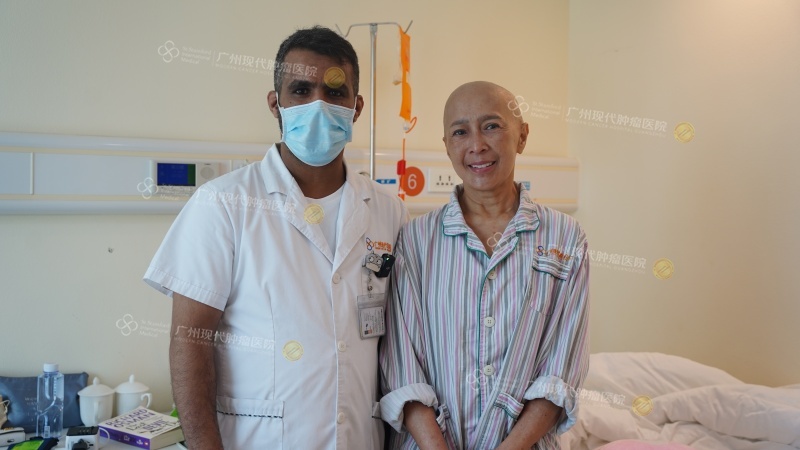
Accurate diagnosis and treatment, patiently convey detailed plan to patient
Diana just arrived at the hospital, and I received her and became her supervisor doctor. I still remember that she was in poor spirits and was thin when she was admitted to the hospital. I arranged a series of examinations for her and two days after admission, her examination results came out: the tumor marker CA19-9 increased to 49.58 *U/ml, and a PET-CT scan showed that there was a size of 1.5x1.2x2.9cm in the cervix. Comprehensive medical history and examination results, it was confirmed that cervical hypodifferentiated adenocarcinoma stage IB2. Given the stage, degree of differentiation of the tumor and the overall situation of the patient, the MDT has fully discussed and analyzed it and believes that a minimally invasive hysterectomy combined with interventional therapy is the most suitable treatment plan. It aims to completely remove tumor lesions and further control the condition through interventional therapy to reduce the risk of recurrence.
When I explained this treatment plan to Diana, she was very excited and said in tears: "I was once unacceptable when I was diagnosed with cancer. I have always lived a healthy life in the past, so how could I get sick?" I couldn't help but ask the doctor: "Does it mean my life is not long?" So I felt anxious and panicky for a while, and my weight dropped rapidly by 8kg. It was not until today that she was convinced and accepted that she had cancer.
I told her, "Don't worry, we have treated many patients, and many of them are in a serious condition than you, and they can still be cured." She smiled after hearing this, looking a little relaxed. Although she had some concerns about the surgery and was worried that the surgery would affect her quality of life, after learning that minimally invasive treatment can better eliminate tumors and prevent recurrence, she decided to receive treatment and expressed her willingness to trust our MDT.
Comprehensive minimally invasive treatment makes tumors "completely disappear" and improves life quality
On June 10, 2024, we completed the "transabdominal generalized total hysterectomy" and "pelvic lymph node dissection" for Diana. The entire operation process went smoothly, and the patient's vital signs were stable after the operation. During the rounds the next day, she said, "I didn't feel too much pain, dizziness, or nausea and recovered very well." At this moment, there was a clear light in her eyes, as if stars were flashing, and this infection was also an affirmation and recognition of our doctors.
After the operation, Diana came to our hospital for a follow-up visit on July 12, 2024. She said she had no vaginal bleeding symptoms and received "percutaneous transarterial tumor infusion chemotherapy" the next day. The drug concentration is 2-92 times higher than that of traditional chemotherapy, which will not harm normal tissues of the body and cause all remaining tumor cells in the body to necrotize. During the treatment, she said she did not feel any discomfort and her vital signs were stable.
After several interventional therapies, a CT scan on October 18, 2024, showed that the tumor had "completely disappeared" and tumor markers had almost returned to normal levels. Diana's weight also began to increase, and her sleep quality and appetite also improved greatly.
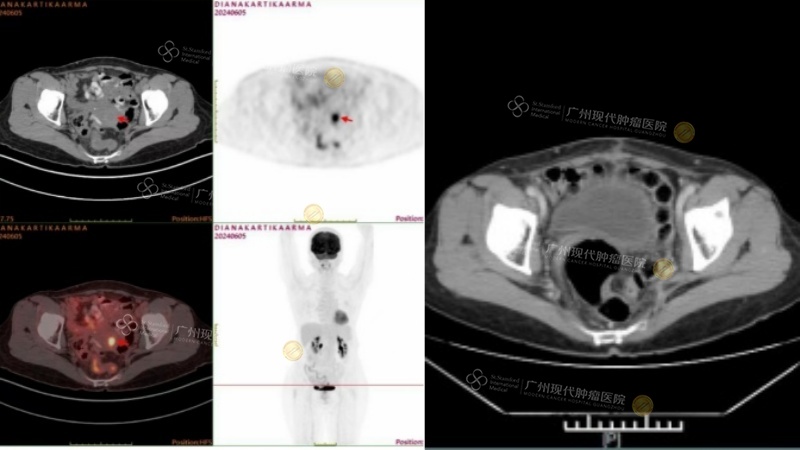
CT before treatment CT after treatment
Care for the physical and mental health of patients and complete the "modern" mission
When she was discharged from the hospital, she came to my office with her daughter and said, "Thank God for letting me have the honor of meeting you, especially you, doctor. You make rounds every day, care about my condition, and constantly encourage me to get up and move around, get some sun, and maintain an optimistic attitude, which makes me feel warm. During the treatment, I can also enjoy the delicious food in the halal restaurant, just like being at home."
What moved me the most was the love that Diana's daughter had for her mother. This love was not expressed in fancy words but in her constant and attentive companionship. During each ward round, I could see her patiently accompanying her mother and sometimes taking her to the hospital garden for a walk and a chat. Such a warm scene illuminated every corner of the ward like sunshine.
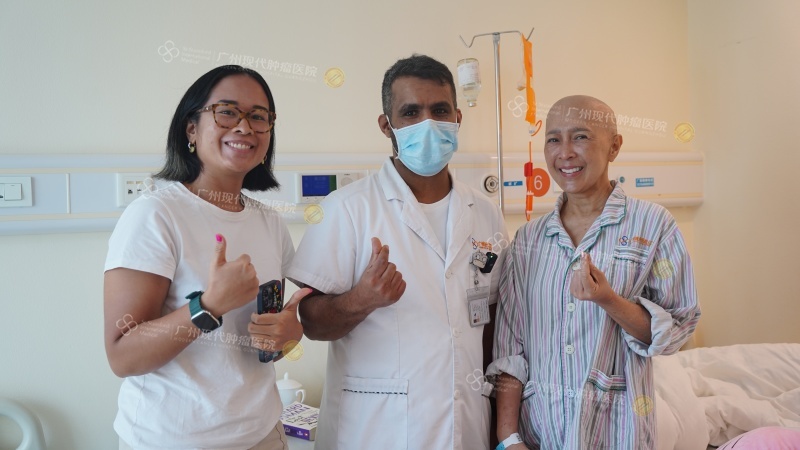
We are very happy to help Diana defeat cancer and fulfill our duty as a doctor. We congratulate her and hope she gets better and better. Here, I also wish that every patient facing cancer can face it bravely like Diana, actively accept treatment, and believe that they can return to "health".






